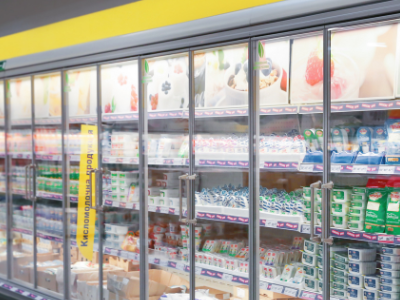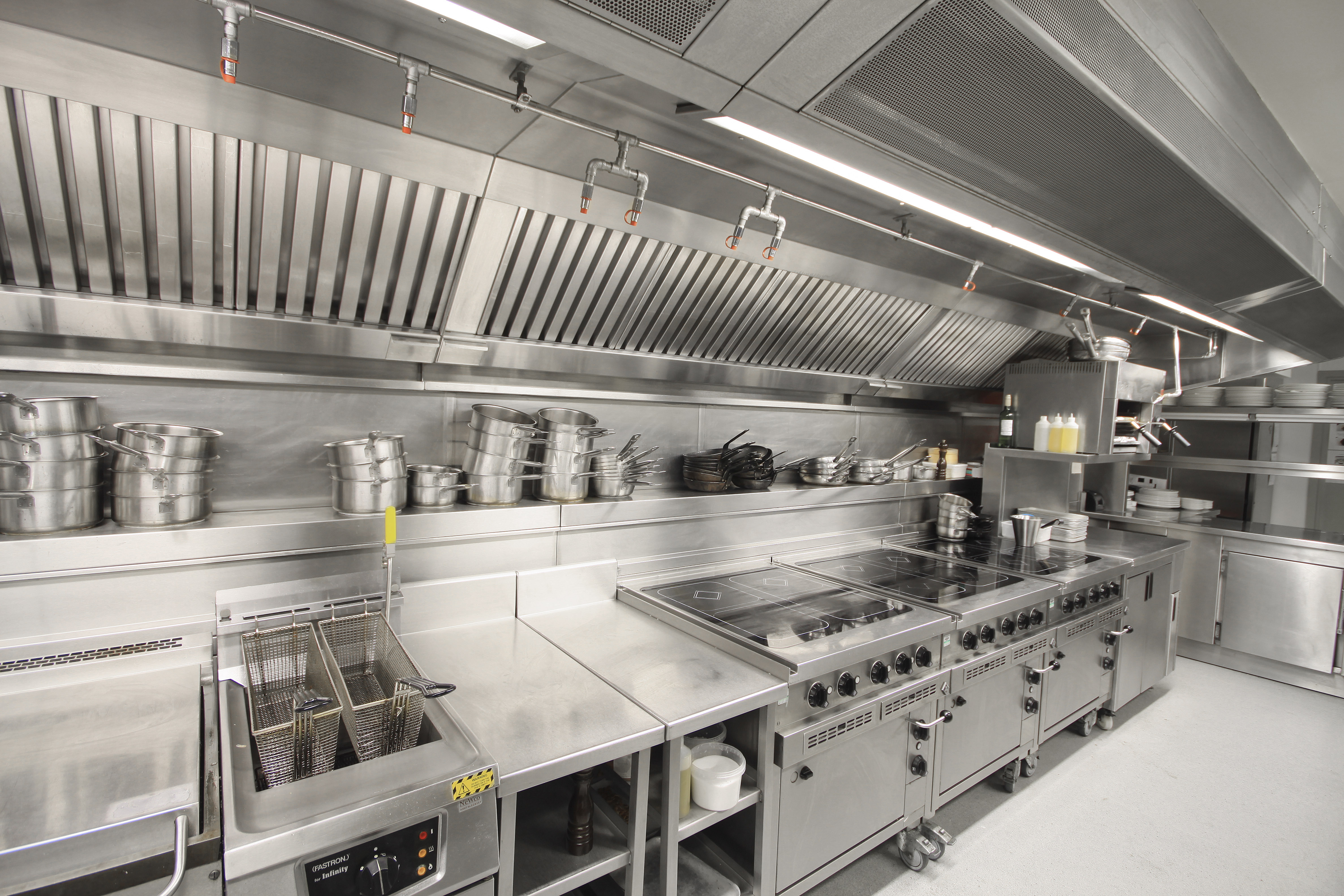In part 1 of our two-part guide we'll help you navigate the process of choosing the best used equipments for your needs.
In part 1 of our two-part guide we'll help you navigate the process of choosing the best used equipments for your needs.
When it comes to outfitting, renovating, or expanding a grocery store, restaurant, convenience store, bar, or food service business, buying used equipment can offer significant savings compared to buying new. But making thoughtful and informed decisions surrounding your future equipment, especially with so many options available to you online, can make all the difference between feeling elated … or deflated.
To help ensure your success, we’ve developed a two-part guide to help you navigate the process of choosing the best used equipment for your needs.
1. DEFINE YOUR REQUIREMENTS
Type of Equipment
Are you looking for refrigerators, freezers, shelving, sinks, or dishwashers … or specialty items like Hobart mixers, Bizerba slicers, Crown forklifts, Biro meat saws, ABS dough dividers, commercial citrus juicers, and kegerators? Create a list or spreadsheet of everything you need in advance so that no important item gets left behind.
Size and Capacity
Determine the size and capacity for each item that will best suit your business’ layout and customer volume. Make sure that the equipment dimensions match your available space and that items integrate well with existing fixtures and systems.
Utility Requisites
Verify that the equipment’s power, water, and other utility requirements are compatible with your infrastructure, especially if you’re making a purchase to use outside of the equipment’s country of origin.
Features
Identify any specific features you require, such as energy efficiency, advanced temperature controls, or compatibility with existing systems.
2. RESEARCH BRAND RELIABILITY
Certain brands are known for their reliability and longevity. Research brands that are reputable in your industry … but don’t be afraid to purchase equipment from other brands as well; this can simply serve as a starting point for you.
Well-Known Brands
Brands like Hobart, True, and Bizerba are recognized for their durability and performance.
Model-Specific Reviews
Look for reviews and feedback on specific models to understand their reliability and performance. Not only that, these and other big name brands can be simpler to find parts for and may even offer support advice if your equipment needs repair.
3. UNDERSTAND THE EQUIPMENT'S LIFE CYCLE
Each type of used equipment has an expected lifespan, which can help you gauge its remaining useful life before needing repairs.
Refrigerators and Freezers
These often have a lifespan of 10-15 years. This doesn’t mean they don’t often exceed these numbers, of course, but if they’re nearing 15 years, plan for potential repairs.
Ovens and Cooktops
Commercial cooking equipment can last upwards of 15-20 years when well-maintained.
Shelving and Storage Racks
These tend to have a longer lifespan and may show less wear, but just make sure you check for structural integrity.
Check with an Expert
If you have questions about an older piece of equipment, try reaching out to a pro. The team at SAM, for example, may be able to provide you with more information on a piece's maintenance history and working condition to help you decide if the investment is worthwhile.
4. SET A BUDGET
Crunch the Numbers
Determine what each item would have cost new and compare used options online. But don’t just choose based on the lowest price you see, since there are other equally-important factors to consider. Look at the brand, condition, and features of a given piece to determine if the savings that come with purchasing used make sense with your goals
Repairs
Factor in potential costs for repairs or refurbishment when setting your budget. Also consider taxes, buyer’s premiums, and shipping costs.
5. INSPECT YOUR EQUIPMENT
While you can’t always inspect your FF&E equipment if it’s not local to you, you should take the time to review the photos each seller or auction house provides.
Condition
Check for visible signs of wear and tear, such as rust, dents, or broken parts. Make sure all components are functioning correctly. But don’t get caught up in the aesthetics of an item that won’t be in public sight. Dents, bumps, and bruises don’t mean an item isn’t in great functioning shape otherwise ... and could mean you get a particularly great deal!
Functionality
Test the equipment if possible. For refrigerators and freezers, ensure that they reach and maintain the correct temperatures.
Certification Labels
Look for certification stickers from organizations like NSF, ISEA, SEI, or UL.
Condition of Electrical Components
Verify that electrical parts are in good working order and comply with safety standards.
Ask About Maintenance History
This may not always be available, so you shouldn’t make this a sticking point, but if and when maintenance history is provided, well-maintained equipment with documented service histories are usually great investments.
Elbow Grease
In some cases, the equipment you’re considering simply needs some TLC. Just like with homes, some “fixer uppers” can be fabulous, but you need to factor in the costs of repairs. If you’re willing to take the time to refurbish, you could end up with an incredible deal on equipment someone else didn’t want to invest the time into. Just make sure to set your bids based on the condition the equipment is in now.
6. RESEARCH THE SELLER
Buying used equipment from a reputable and credible seller can significantly impact your experience. Consider these options:
Online Marketplaces
Platforms like eBay, Craigslist, or specialized used equipment sites offer a wide range of options, but require careful vetting.
Industry Experience
A vendor with extensive experience in the industry is likely to offer better quality equipment and support. You decrease your risk significantly by purchasing from long-standing used equipment sites like SAM Auctions and SAM Marketplace which have been in business for over 35 years.
Unlike individual sellers on public online marketplaces, specialty auction houses and equipment marketplaces with recurring customers have been vetted by the household name chains they liquidate for.
Equipment Dealers
Established dealers often provide service support but equipment typically comes at heftier price tags that inch close to retail pricing.
Recent Posts
Commercial refrigeration equipment represents one...
The phrase "New Year, New Me" is commonly used to...
This Holiday Season, Unwrap the Savings and...
Posts by Tag
- Surplus Asset Management (5)
- Corporate Sustainability (4)
- Equipment Sales (4)
- Grocery Store Auctions (4)
- Auction Options (3)
- Removals (3)
- Used Grocery Equipment (3)
- Restaurant Equipment (2)
- POS systems (1)
- Refrigeration Equipment (1)
- Sustainability (1)
- Used Restaurant Equipment (1)
- auctions (1)
Popular Posts
In this current economic climate it’s not...
Whether you’re looking to start a restaurant...
The push for every industry to “go green” is not...






.png)